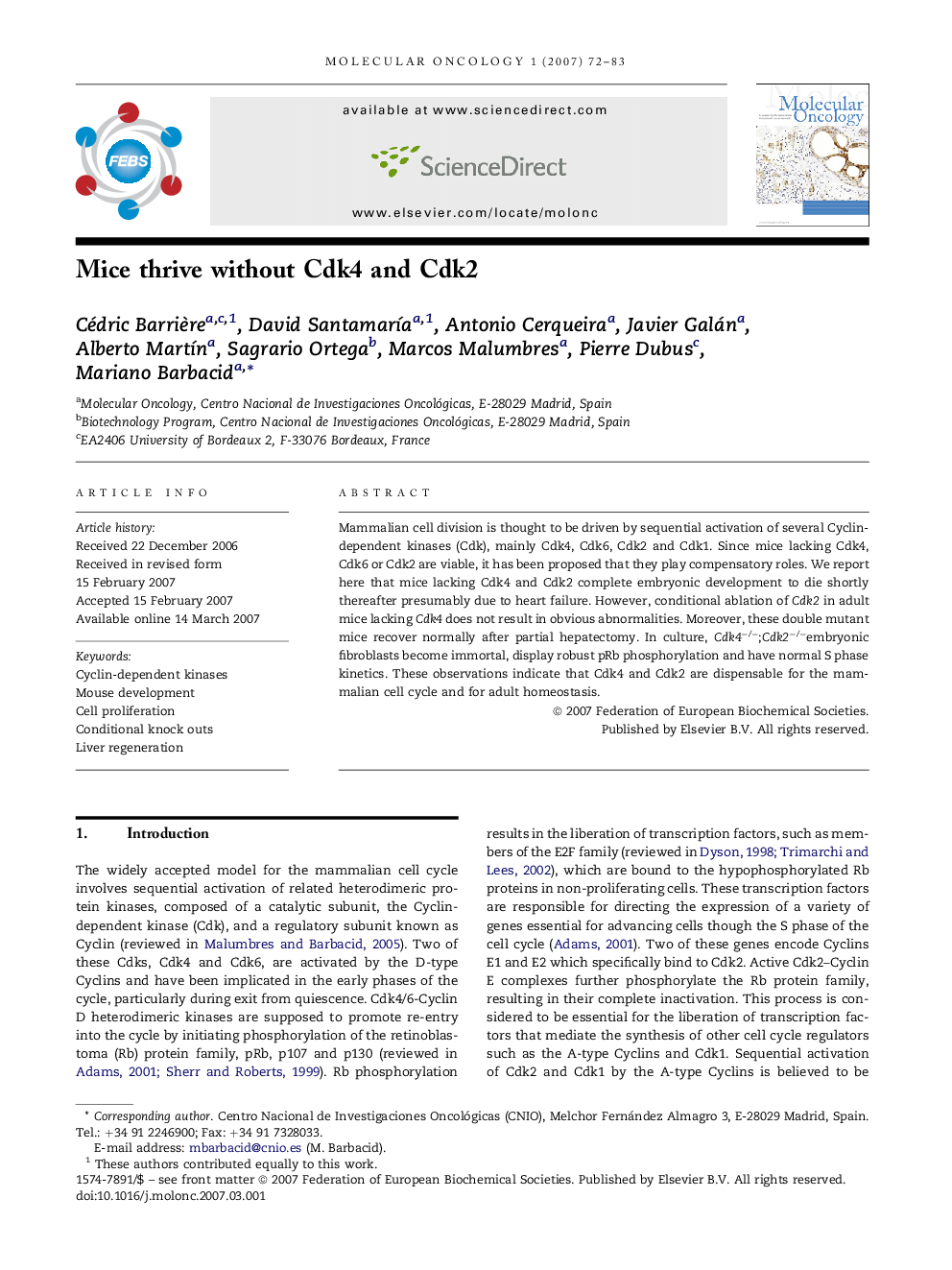| Article ID | Journal | Published Year | Pages | File Type |
|---|---|---|---|---|
| 2146038 | Molecular Oncology | 2007 | 12 Pages |
Mammalian cell division is thought to be driven by sequential activation of several Cyclin-dependent kinases (Cdk), mainly Cdk4, Cdk6, Cdk2 and Cdk1. Since mice lacking Cdk4, Cdk6 or Cdk2 are viable, it has been proposed that they play compensatory roles. We report here that mice lacking Cdk4 and Cdk2 complete embryonic development to die shortly thereafter presumably due to heart failure. However, conditional ablation of Cdk2 in adult mice lacking Cdk4 does not result in obvious abnormalities. Moreover, these double mutant mice recover normally after partial hepatectomy. In culture, Cdk4−/−;Cdk2−/−embryonic fibroblasts become immortal, display robust pRb phosphorylation and have normal S phase kinetics. These observations indicate that Cdk4 and Cdk2 are dispensable for the mammalian cell cycle and for adult homeostasis.
